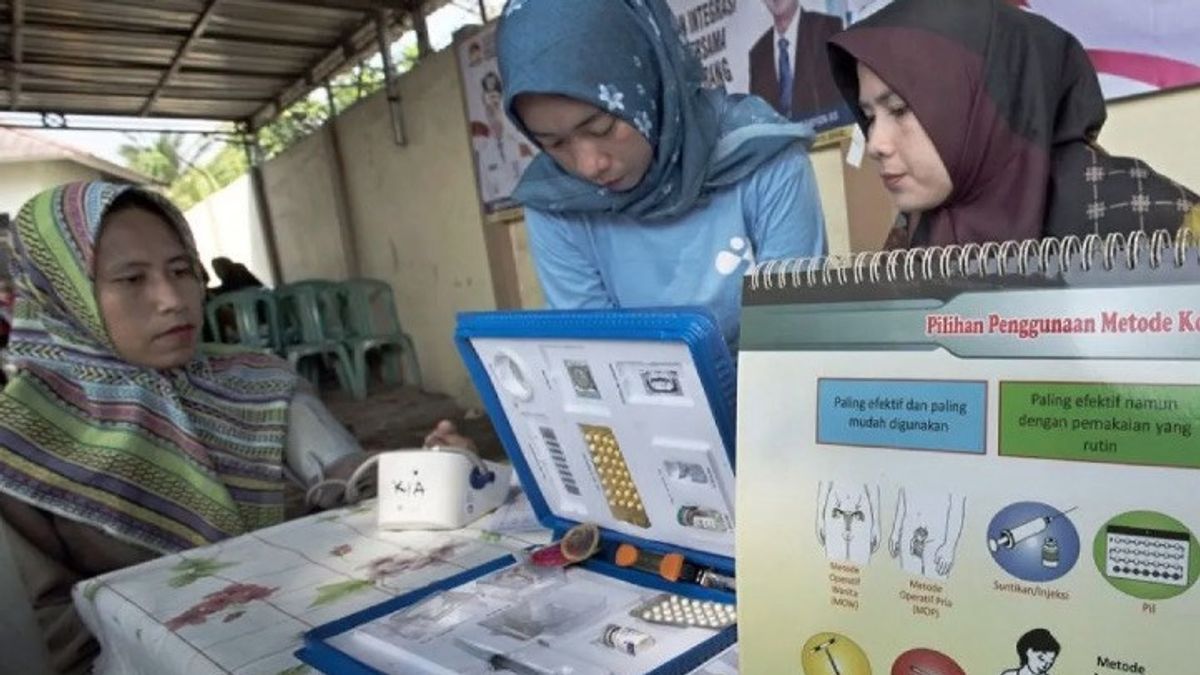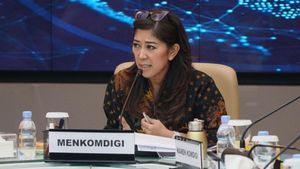JAKARTA – The polemic of providing contraceptives for school-age children and adolescents is still a concern. The government regulation is considered ambiguous and has the potential to be misinterpreted as allowing free sex for students.
Previously, President Joko Widodo signed Government Regulation (PP) Number 28 of 2024 concerning the Implementing Regulations of Law Number 17 of 2023 concerning Health (Health Law).
However, the article on the provision of contraceptives for school-age children and adolescents in the PP caused a commotion. To be precise, in article 103, especially Paragraph (4) point "e", namely the provision of contraceptives.
No Age Clarity
Quoting the Ministry of Health's website, Ministry of Health Spokesperson Mohammad Syahril explained that education related to reproductive health also includes the use of contraception.
"However, the provision of contraceptives is not intended for all teenagers, but only for teenagers who are married with the aim of delaying pregnancy when the prospective mother is not ready due to economic or health problems," said Syahril in Jakarta (5/8).
"So, the provision of contraceptives is only given to teenagers who are married so that they can delay pregnancy until a safe age for pregnancy," he said.
He added that early marriage will increase the risk of maternal and child mortality. The risk of children born will be stunted is also very high.
The problem is, the public is confused about 'school age and teenagers' as stated in the PP on Health. There is no certainty about what age is meant.

Government Regulation (PP) Number 28 of 2024 concerning the Implementing Regulations of Law Number 17 of 2023 concerning Health (Health Law) has become a polemic due to the provision of contraceptives for school age and adolescents. (Illustration: Unsplash)
The age range of adolescents also has different views according to the World Health Organization (WHO), the Ministry of Health, and the Population and Family Planning Agency (BKKBN).
In general, adolescence is defined as a transition period from childhood to adulthood. The age limit for adolescents according to WHO is 12 to 24 years.
But if someone is married at adolescence, then they are considered adults. Conversely, if the age is no longer a teenager but is still dependent on their parents or not independent, then they are included in the adolescent group.
Meanwhile, according to the regulation of the Minister of Health of the Republic of Indonesia Number 25 of 2014, adolescents are residents in the age range of 10-18 years. Finally, BKKBN includes the age of 10-24 years as the adolescent group.
Prone to Misinterpretation
The regulation on contraceptives in PP Number 28 of 2024 is prone to misinterpretation, because Article 103 does not state in detail regarding students who are given education.
"I think there needs to be a clear explanation and education, because the current article can be misinterpreted," said Member of Commission IX of the DPR Arzeti Bilbina.
The ambiguous age limit for teenagers regarding the provision of contraceptives for school age and teenagers does not occur in the age limit for smoking in Indonesia in the same PP.
Currently, the ban on cigarette sales applies to those under the age of 21, from previously only under 18 years.
"Everyone is prohibited from selling tobacco products and electronic cigarettes: to those under 21 years of age and pregnant women," reads Article 434 Paragraph (1) letter b.
Likewise with the legal age for drinking alcohol in Indonesia. One of the regulations regarding alcoholic beverages is the Regulation of the Minister of Trade Number 20/M-Dag/Per/4/2014 concerning Control and Supervision of the Procurement, Distribution, and Sale of Alcoholic Beverages.
Referring to this regulation, there is a minimum age limit permitted to consume alcoholic beverages, namely 21 years.
Emergency of Pornography and Sexual Violence Against Children
National Coordinator of the Indonesian Education Monitoring Network, Ubaid Matraji, also commented on PP Number 28 of 2024. In Ubaid's view, the government must listen to the voice of the people, because this clearly concerns their livelihoods.
He considers this regulation to be very non-participatory and does not involve community participation in its discussion.
"Rather than contradicting the social order in schools and also damaging children's morality, this regulation should be revoked and discussed again by involving wider participation," Ubaid told VOI.
Indonesia itself is currently facing an emergency situation of pornography and sexual violence against children.

According to data from the National Center for Missing Exploited Children (NCMEC), cases of child pornography in Indonesia are the fourth highest in the world, and ranked second on the Southeast Asian scale.
"In the midst of a situation like this, the government should strengthen sexual education and also develop reproductive health counseling for children in schools, rather than providing contraceptives," said Ubaid.
For this reason, JPPI urges the government to revoke PP Number 28 of 2024 because it threatens the future of Indonesian children. Ubaid also emphasized that his party rejects contraceptives for children in schools, because what is needed is reproductive health education.
The provision of contraceptives in the wrong place results in many cases of misuse of contraceptives in children, which leads to the trap of cases of violence against children.
School-age children should focus on the reproductive education process at school, not actively using contraceptives. This is because school-age children are not yet considered legally able to give sexual consent (age of consent).
"This must be underlined, the age of consent must follow the legal age of marriage based on the Marriage Law in Indonesia, which is 19 years. So, the provision of contraceptives for school-age children must be rejected because it invites more danger, and even has no benefits," concluded Ubaid.
The English, Chinese, Japanese, Arabic, and French versions are automatically generated by the AI. So there may still be inaccuracies in translating, please always see Indonesian as our main language. (system supported by DigitalSiber.id)









